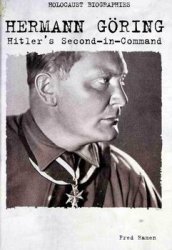Marshal of Champagne and Romania, a leading figure in the Fourth Crusade (1202-1204), and its principal chronicler.
Geoffrey was born near Troyes around 1150, a member of the lesser nobility of Champagne. By 1172 he was a knight serving the count of Champagne, and he was appointed marshal of Champagne in 1185. He fought in the Third Crusade in 1190 and was captured by the Muslims during the siege of Acre (mod. ‘Akko, Israel).
By 1194 Geoffrey of Villehardouin was back in Champagne, where he was an important member of the court of Count Thibaud III. He was chosen by the leading crusaders as one of the envoys sent to Venice to negotiate transport to the East, where he acted as the envoys’ spokesman. When Thibaud III died, Villehardouin proposed Boniface of Mont-ferrat as leader of the crusade, and at Zara (mod. Zadar, Croatia) he favored accepting the offer of the exiled Prince Alex-ios (IV) Angelos to divert the crusade army to Constantinople (mod. Istanbul, Turkey). After the arrival of the fleet at Constantinople he acted as one of the leaders of the knights from Champagne, and he was in charge of the army’s rear guard during the confrontation with Alexios III (18 July 1203). After the restoration of Emperor Isaac II Angelos, Villehardouin led the delegation to the emperor to announce the crusaders’ conditions. In November 1203 he went with Conon of Bethune to confront Alexios IV, who was not observing his agreement with the crusaders.
After the second capture of Constantinople by the crusaders and the election of Baldwin of Flanders as Latin emperor, Villehardouin acted as one of the commanders in the capital, while Baldwin and Boniface were campaigning in Thrace. He also played a prominent role in appeasing the quarrel between the two men: trusted by Boniface, he was able to persuade him to submit to arbitration. Villehardouin received a fief at Makre (autumn 1204) and was probably created marshal of Romania then. He led the vanguard when Baldwin went to lift the siege of Adrianople (mod. Edirne, Turkey). During the battle he was in charge of the camp guard (14 April 1205), and it fell to him to rally the fugitives and command the withdrawal to Rodosto.
In early 1206 Villehardouin accompanied Baldwin’s successor, Henry, in his successful campaign against Kalojan (Joanitsa), the Bulgarian ruler, leading a dangerous mission to rescue Renier de Trit. He was sent by Henry to escort his bride, the daughter of Boniface of Montferrat, to Constantinople (January 1207) and was chosen by Henry as one of the judges to fix the division between French and Venetian possessions in Gallipoli (mod. Gelibolu, Turkey). He was present at the last interview between Henry and Boniface (August 1207), when Boniface offered him Mosynopolis. In March 1208 he made gifts to religious houses in France, where his sisters and daughters were nuns, and in May of that year, when Henry defeated the Bulgarians under Boril, Villehardouin commanded the vanguard. He was left in charge of Constantinople when Henry campaigned against the Lombards (December 1208); this is the last mention of him by the chronicler Henry of Valenciennes. Ville-hardouin’s name appears in two acts, one from 1210 and the other from 1212, after which there is silence until June 1218, when his son confirmed two gifts to religious houses to celebrate the birthdays of his father and mother. Four similar acts exist from 1218 and 1219, suggesting that Villehardouin had died quite recently.
Villehardouin’s chronicle covers the period from the preaching of the crusade by Fulk of Neuilly (1198) until the death of Boniface of Montferrat (4 September 1207). It is written in unpretentious French prose with only a few dialectal features, and Villehardouin claims that he is writing about only what he himself witnessed. As one of the crusade’s leaders, he had access to the inner councils and was both an eyewitness and a participant in everything that he describes. He was wholly committed to the success of the crusading army and regarded the preservation of the unity of the army as an end in itself. He is very critical of any who opposed the policies of the army leaders and full of contempt for the Greeks, who, in his eyes, were treacherous, schismatic, and unfit to hold their land. He is not blind to the faults of the crusaders in Greece, but remains convinced that only God’s will could have secured the triumph of such a small army over the greatest city in Christendom. There has been intense, critical controversy over his sincerity, but his account remains the most important and detailed Western source for the progress of the Fourth Crusade.
-Peter S. Noble
Bibliography
Archambault, Paul, Seven French Chroniclers: Witnesses to History (Syracuse, NY: Syracuse University Press, 1974).
Beer, Jeanette M. A., Villehardouin, Epic Historian (Geneva: Droz, 1968).
Dufournet, Jean, Les ecrivains de la IV croisade: Villehardouin et Clari (Paris: Societe d’Edition d’Enseignement superieur, 1973).
Geoffrey de Villehardouin, La conquete de Constantinople, 2d ed., 2 vols., ed. and trans. Edmond Faral, (Paris: Les Belles Lettres, 1961).
-, La conquete de Constantinople, ed. Jean Dufournet
(Paris: Garnier Flammarion, 1969).
Joinville and Villehardouin, Chronicles of the Crusades, trans. Margaret R. B. Shaw (London: Penguin, 1963).
Longnon, Jean, Recherches sur la vie de Geoffroy de Villehardouin (Paris: Champion, 1939).
Morris, Colin, “Geoffrey de Villehardouin and the Conquest of Constantinople,” History 53 (1968), 24-34.




 World History
World History









